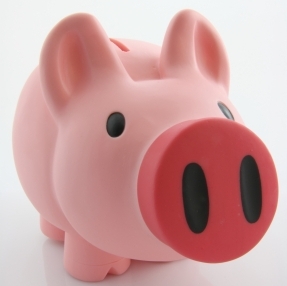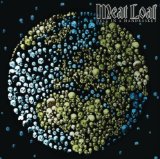It sounds like a new age meditation, but the �Savings Fountain' is my concept to cut a path through the savings conundrum. Using it could easily double the interest you earn.
It's necessary because normal savings accounts aren't the first place to start with your cash. There's an order of priority to maximize your interest because different savings products work in different ways, with different rates and tax treatment.
Video originally transmitted: 07/2008
Two questions before you start
Question 1. Do you have any debts?
If you do, it's far better to pay off debts before starting to save.The interest cost of debts is much higher than the interest earned on savings. Therefore pay off your debts with your savings and you're much better off.
In some circumstances this can apply to your mortgage as well as credit card and loan debts too. If this is your case please first read the full �should I pay of debts with my savings' article.
Question 2. Do you want to save or invest?
It's important to understand the difference between saving and investing as a start point.
- Saving. You put money away in complete safety, and get it all back plus interest.
- Investing. You risk losing some interest and/or some of your cash for the chance it'll grow quicker.
There is no right answer here, it all depends on your circumstances. Over the long term the stock market usually outperforms savings accounts. Unfortunately by its very nature this isn't guaranteed, and get it wrong, or even just get the timing wrong and you could end up with less than you started with.
Of course it's not just the stock market: property, wines, antiques, starting a business can all be seen as types of investment. They all involve you putting money away in the hope your assets will appreciate, but the risk you may lose cash.
If you can't afford or don't want to take any risk with your cash, then saving is for you and thus read on. If you want to invest, see the relevant articles in the Saving and Investing section.
The Savings Fountain
The fountain is simple. Pour as much cash as possible into the best-paying savings vehicle possible, then, when it's full and overflowing, fill up the next best and so on.
| |||||||||
| |||||||||
| |||||||||
How safe are your savings
Bank collapse was once easy to dismiss, then the credit crunch and global market turmoil hit. The UK soon found itself bailing out Northern Rock, and the US authorities followed for even bigger bank Bear Stearns. This means these days every sensible saver should ask �is my money safe?.
The answer is quite simple. Provided your money is in a UK regulated bank or building society account, it�s protected under the Financial Services Compensation Scheme (FSCS) and here�s the golden rule.
The first �85,000 per person, per financial institution is guaranteed.
Sadly this is the simple face of savings safety; the exact rules are more complex involving how different banks are registered and what counts as a financial institution. For full info read the full Are My Savings Safe? guide.
How to maximise safety
If you've got less than �85,000 there's no problem. Yet for those with bigger savings, in the unlikely event a bank or building society went bust; for total peace of mind don�t put more than �85,000 in any one institution; spread it around.
For those with very large amounts of savings (for example a house sale), this could lead to lots of accounts, even if you've too much to stick to the �85,000 limit for each one, the general rule of not having all your eggs in one basket still works. For more info see the how to get 100% safety section of the savings safety guide.
This guide and best buys
It's impossible to pick "which bank is in trouble?", we've seen great names of world banking like Goldman Sachs and Merrill Lynch in trouble. Therefore the only solution for this site is that we'll report the top rates regardless, alongside explaining any 'protection oddities'. So far, world governments have reacted to protect their banks and no savers have lost money, and its likely (though not certain) that will continue.
A few variations
There are some other fountain options. Those willing to lock money away can opt for fixed rate savings accounts or cash ISAs. Also, remember as children don't pay tax their accounts are quite an efficient way to put money in (see the Use Your Child For An Extra Tax Free Allowance article).
Non-taxpayers' note
The non-taxpayers' fountain differs slightly as there's no cash ISA tax gain. Yet potential future taxpayers should still consider them as, if you open one now and don't withdraw the money, the interest should still be tax free by the time you start paying tax. It's a good preventative measure.
For those who won't ever pay tax, the fountain should start with a Regular Saver as the interest is highest. After that pick a cash ISA or savings account depending on which pays more.
Remember the rates on all these accounts will change. It's worth checking every six months or so to see if there's a higher-paying equivalent.
Married Couples Can Save Tax on Savings
If you're married and one of you pays tax at a higher rate than the other, then do make sure all the savings (providing you trust each other) are in the name of the lower rate taxpayer. This way you'll pay much less tax on the interest, saving you money. Very simple and very effective. Discuss it .
 Habitat 25% off
Habitat 25% off Superdry 15% off
Superdry 15% off �10 off iPods code
�10 off iPods code









